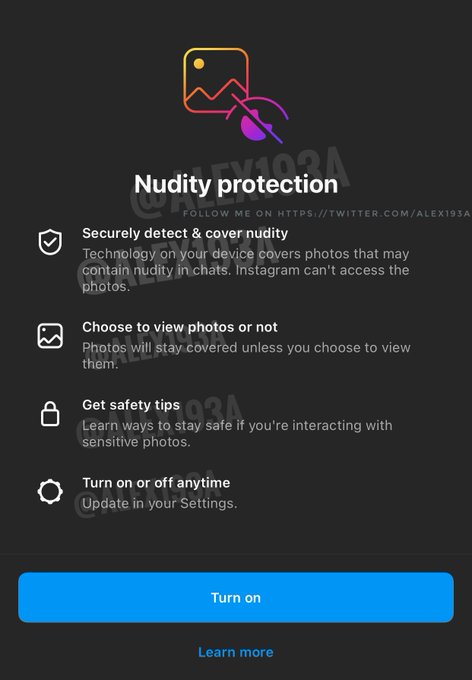Insta is Working on New Feature to Protect Users from Unsolicited Nude Photos via DM

Insta, (Instagram) the photo, and video sharing social networking service platform is experimenting with a new method to filter out unsolicited nude messages sent via direct messages. After app researcher Alessandro Paluzzi published an early image of the tool earlier this week, Instagram’s parent company, Meta, confirmed to The Verge that the feature was in development.

According to Meta, the optional user controls, which are still in the works, will help people protect themselves from nude photos and other unwanted messages.
These controls are similar to the company’s “Hidden Words” feature, which allows users to automatically filter direct message requests containing offensive content.
Insta ‘s parent company says the technology will not allow it to view or share actual messages. “We’re collaborating with experts to ensure these new features protect people’s privacy while giving them control over the messages they receive,” Meta spokesperson Liz Fernandez said.
Meta says it will share more information about the new feature in the coming weeks as testing progresses.
Instances of image-based abuses
According to a report released earlier this year by the Center for Countering Digital Hate, a British nonprofit organization, Instagram’s tools failed to respond to 90% of image-based abusive direct messages sent to high-profile women. Men sent sexual images to many people, and even the “hidden words” feature couldn’t completely filter out swear words like “b*tch.”
Meanwhile, The Pew Research Center published a report last year that found that 33% of women under the age of 35 had been sexually harassed online.
Work on the new Instagram feature comes as cyber flashing, which involves sending unsolicited sexual messages to strangers — often women — online, could soon become a criminal offense in the UK if the Online Safety Bill is passed by Parliament.
However, cyber flashings is not a crime in most of the United States, though Texas made it a misdemeanor in 2019. DeAlthoughome experts believe it can be just as damaging psychologically as physical sexual abuse.
“Some will come forward and say [cyber flashing] is harmless,” Durham Law School’s professor Clare McGlynn, an expert in image-based sexual abuse, told HuffPost. “Everyone struggles with the fact it isn’t facing to face, but you can’t rank sexual offenses like that. The harm of sexual offenses is so significant and different forms of offending can have the same impact on different people.”
This Insta ‘s user controls feature will be critical, especially for women in developing countries like Africa, where there are almost no cyber laws in place to protect women from image-based abuses from cyber bullies.
